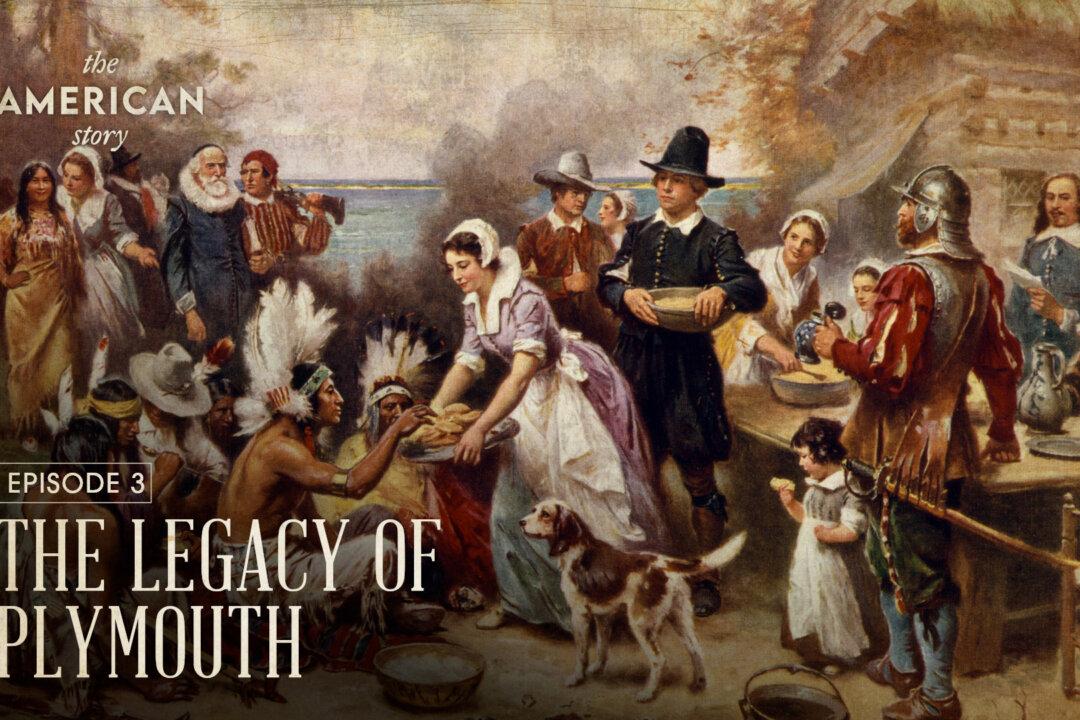Commentary
I highly recommend watching one of the latest episodes on EpochTV, “The Legacy of Plymouth,” part three of a series entitled “The American Story.” Host Timothy Barton, President of WallBuilders, and Jonathan Richie, Assistant Director of the American Journey Experience tell the inspiring story of one of the earliest colonies in America, the Plymouth Pilgrims. The episode highlights where some of the earliest seeds of religious liberty, equality, and inalienable rights were first planted in the new world.





